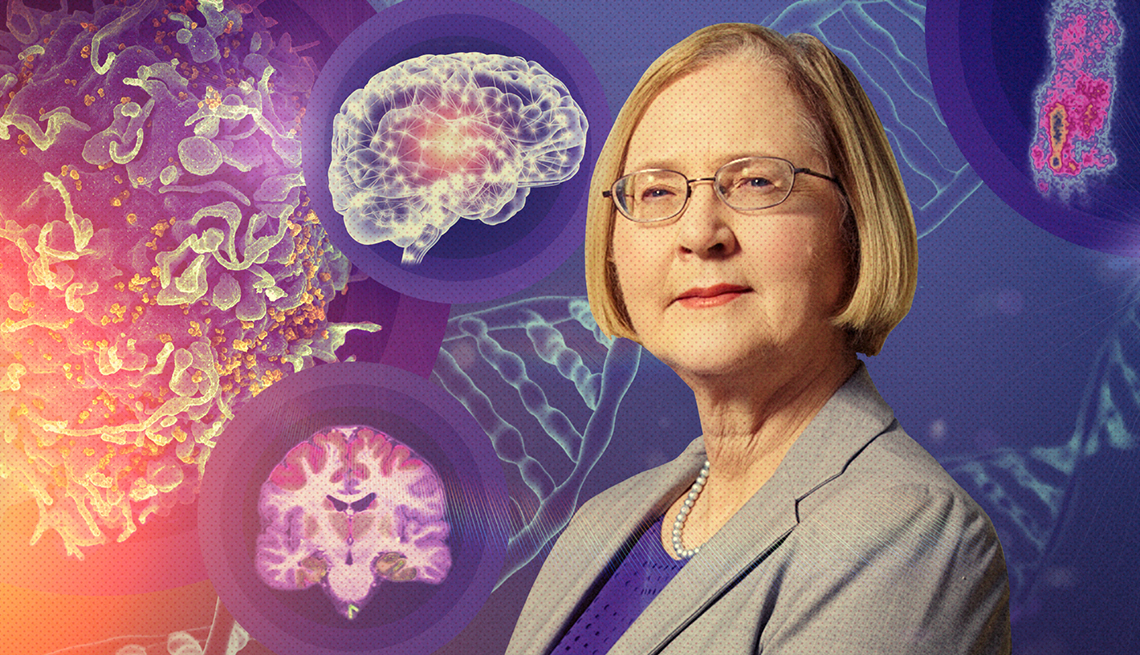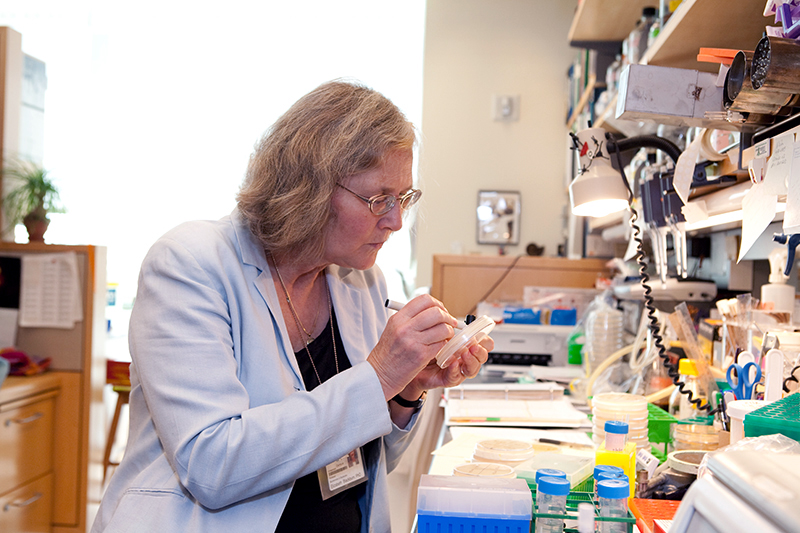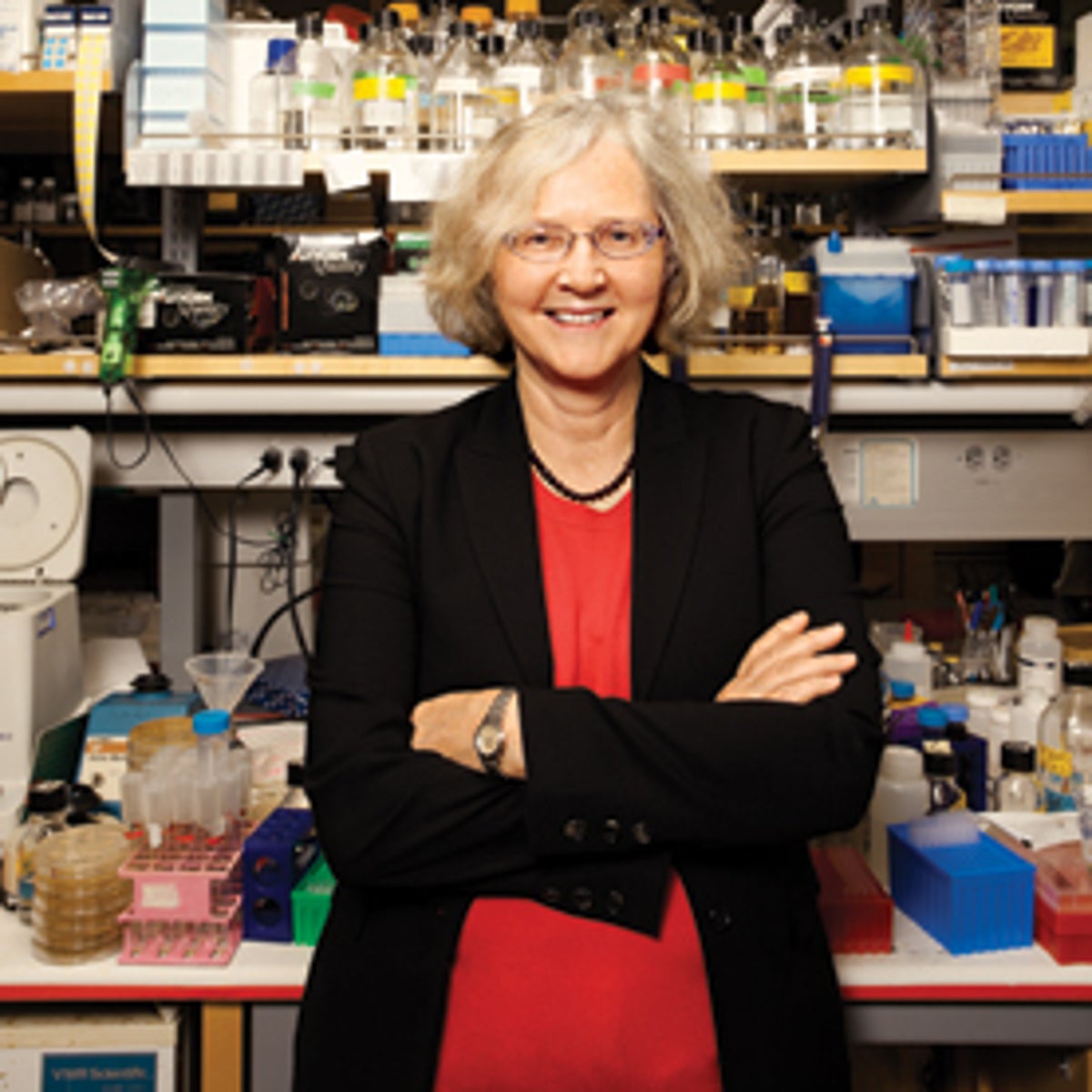The Woman Who Solved the Mystery of DNA: Elizabeth Blackburn

Elizabeth Blackburn is an Australian-American molecular biologist and Nobel laureate. She is best known for her work on telomeres and telomerase.
Telomeres are the repeating nucleotide sequences at the ends of chromosomes. They protect the chromosomes from damage and fusion. Telomerase is an enzyme that maintains telomere length.
Blackburn was born in Tasmania, Australia, in 1948. She studied biochemistry at the University of Melbourne and then moved to the United States to pursue her graduate studies. She received her Ph.D. in molecular biology from Yale University in 1978.
After her postdoctoral training, Blackburn joined the faculty of the University of California, Berkeley. In 1990, she moved to the Salk Institute for Biological Studies in San Diego,
California. She served as the Salk Institute's president from 2003 to 2016.
Blackburn's research has focused on the structure and function of telomeres and telomerase. Her work has led to a better understanding of how telomeres protect chromosomes and how telomerase maintains telomere length.
In 2009, Blackburn was awarded the Nobel Prize in Physiology or Medicine for her work on telomeres and telomerase. She shared the prize with Carol W. Greider and Jack W. Szostak.
Blackburn is a member of the National Academy of Sciences, the Institute of Medicine, and the Royal Society of London. She has received numerous awards for her research, including the Albert Lasker Award for Basic Medical Research, the Louisa Gross Horwitz Prize, and the Benjamin Franklin Medal.
Blackburn is a strong advocate for women in science. She is the founder of the Rosalind Franklin Society, an organization that promotes the advancement of women in science. She is also a member of the American Association for the Advancement of Science's Committee on Women in Science.
Blackburn is an inspiring scientist who has made significant contributions to our understanding of telomeres and telomerase. Her work has the potential to lead to new treatments for cancer and other diseases.
Here are some of her most notable achievements:
- Blackburn was the first to identify telomeres as the repeating nucleotide sequences at the ends of chromosomes.
- She discovered that telomerase is an enzyme that maintains telomere length.
- Her work has led to a better understanding of how telomeres protect chromosomes and how telomerase maintains telomere length.
- She was awarded the Nobel Prize in Physiology or Medicine in 2009 for her work on telomeres and telomerase.
Blackburn is a pioneer in the field of telomere research. Her work has had a major impact on our understanding of how chromosomes are protected and how cells age. Her research has the potential to lead to new treatments for cancer and other diseases.

https://www.nobelprize.org/prizes/medicine/2009/blackburn/biographical/
https://en.wikipedia.org/wiki/Elizabeth_Blackburn
https://www.britannica.com/biography/Elizabeth-Blackburn
https://scientificwomen.net/women/blackburn-elizabeth-16


































